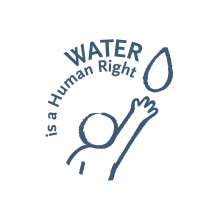
I have been recently working on a paper discussing the ownership of water, assuming for my argument that you can somehow lay claim to water. Now that the paper is finished, I am free to ponder whether or not you can actually lay claim to water.
Water is not something static. It is constantly moving, flowing, and changing. It doesn’t stay in the same place at any time, regardless of whether you remove it from the river/stream/ocean or not. It evaporates back into the sky and returns to the water cycle.
So how can someone lay a claim to water?
One way that people have done this is to create riparian rights – the rights to the land surrounding water. Thus I can own land around a lake and have a claim on the water in the lake, but I still cannot own water.
Ownership implies some kind of control over the object that is owned – if I own something I can control access to it, or how it is maintained. But is control over water really the goal? Controlling water does not guarantee the state in which water will be kept – it does not stop the water from becoming polluted. Furthermore, control implies some kind of dominance over the object. What is forgotten, however, is that water cannot be controlled. Tsunamis, hurricanes, and floods are all evidence as to how much more powerful water is than humans. When people have attempted to constrain water, time and time again it has overpowered the constraints.
Frank Trelease uses the thought experiment that if you buy a watch, you have ownership of the watch. And if you have ownership of the watch, you can protect the watch and demand damages if it is broken. To him, if I own water, then I can seek any damages for the pollution of that water. And in order to own water, I must buy it. Whether that buying is in the riparian sense, where one buys the land surrounding water and is given claim to the water, or in the infrastructure sense, where one buys the water that is pumped to one’s house, is hard to determine. However, his conception of ownership implies that if one owns something, one can defend it. But what if the resource could defend itself?
Christopher Stone, in his essay ‘Should the Trees have Standing?’ discusses whether or not natural objects like trees and rivers should be allowed to have legal standing. In the process, he says that if we are to view rivers as to be something that can be wronged, then we must also hold the rivers accountable for their impact on the earth: namely the impact of floods. The river should be made to pay damages for its destruction (through the use of a legal guardian and a fund created in the name of the river). Through this understand, rivers and streams would not be owned, couldn’t be owned, as ownership would deny them their rights as objects of legal standing. Rather water would be borrowed from the river/stream and would have to be returned in good condition.
Furthermore, if water can be owned, than water can be sold. J.H. Dales discusses the importance of acknowledging water ownership so that it can be priced effectively for the market. His argument is that if water can be owned, than it can be treated as a material good with a fixed pricing system, rather than affixing an arbitrary price to water, as had been done previously.
But to return to the original question, how can someone lay claim to water, the answer is much more complicated than if ownership is justified. If water can be owned, can it be bought? Or is the ownership in name only, meaning that I can own the water I pull from a stream? I think the answer is a bit of both. When I pull water from a stream to use it, I own that water. John Locke writes that ownership of a resource only requires the mixing of one’s labor with the resource – by Lockean understanding, I own whatever water I remove from the water cycle.

(Photo Credit 1: Water Ownership) (Image Credit 2: Public Services International)